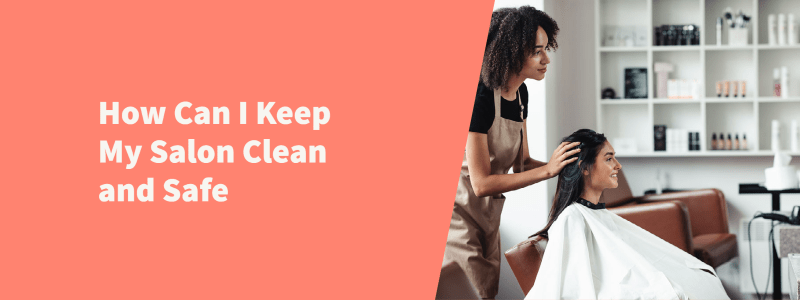We get a lot of enquiries from people with salon businesses, from “how should I dispose of hair?” to “what counts as hazardous waste?”.
As compliance experts, it’s our job to help salons across the UK to run a clean, safe and convenient workplace. So, even if you feel like you run a pretty tight ship, take a look at this guidance to see if you’re doing all you can to keep your salon clean and safe.
What Do You Do with Hair Waste?
This is the question we get asked the most – and you’ll be pleased to know, it’s a pretty simple answer.
Hair doesn’t fall under any specialist waste classification, that means it is simply “general waste” and can be put in your standard bins.
This is providing that the hair isn’t heavily contaminated with anything dangerous. Things such as hazardous substances or bodily fluid may be classed as hazardous or offensive waste and will need a specialist service.
Even though general waste seems like the simplest of waste services, it’s still important to ensure your salon is using a license waste carrier for all bin collections. You need to comply with UK regulations and some providers aren’t licensed.
Click Here to Call for an Instant Salon Waste Disposal Quote
Why is it Important to Avoid Cross Infection and Infestation in a Salon?
You could be in for a world of hurt from the HSE if you fail to safeguard your staff and visitors from cross infection and infestation.
Cross infection is the transfer of bacteria: harmful germs could transfer from one person to another through the use of tools that haven’t been properly cleaned. Before starting a business, make sure you have a clear cleaning process in place for everyone to adhere to. You also need to remember to sterilise equipment between uses.
Infestation refers to an invasion of pests: pests could be in the form of miniscule insects to larger creatures like rodents. They’ll deter your customers, cause staff complaints and pose a serious health risk. Make sure you have preventative measures in place – tips from this pest control article will get you on the right track.
Failure to keep on top of these hygiene issues will definitely lead to a bad reputation, and potentially fines, closure or other forms of prosecution.
What are Good Working Practices in the Salon?
How do you avoid fines? You can start by having straightforward but thorough practices in place, such as:
- Regular Salon cleaning: have a process in place for all workers to follow in between each client. Ensure you keep an eye on the standard of cleaning so that it is properly effective (e.g. use of the right supplies in sufficient quantities).
- Stay stocked up: running out of hygiene products should never be an excuse in your salon. Always have plenty of stock of things like antibacterial spray, wipes, paper towels, tissues, soap, janitorial equipment, etc.
- Knowledgeable and compliant staff: there’s no use having great health and safety rules if nobody follows them. Make sure you teach your staff about the importance of hygiene. Make the tools they need accessible to them and guide them on how to successfully implement these practices.
- Use accredited services: you’re going to have to rely on suppliers and contractors for things like Waste Management and safety services. Make sure you go with a reliable and trusted company who will provide you with Duty of Care documentation.
What are the Key Services Salons Need?
Prioritising is tough with so many aspects to consider. Because of this, we’ve compiled a list of some of the must-haves and nice-to-haves to help get you started.
Top priority:
The trimmings:

